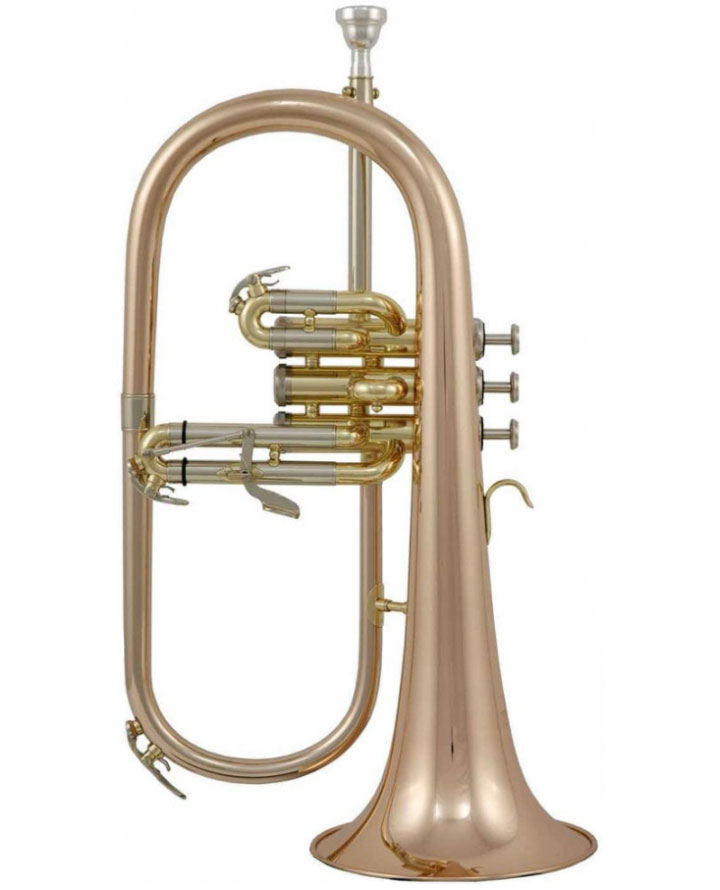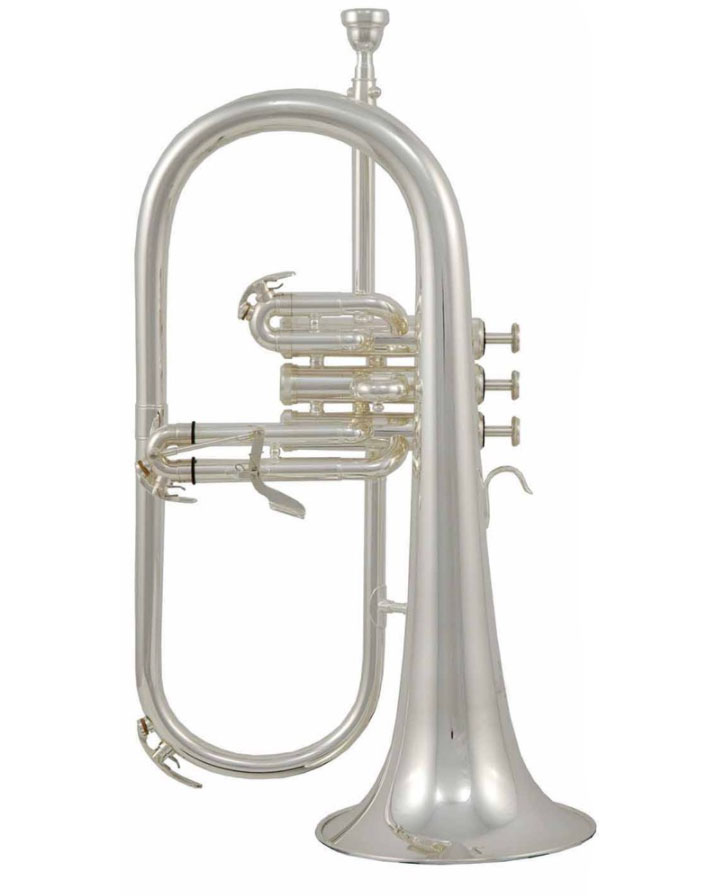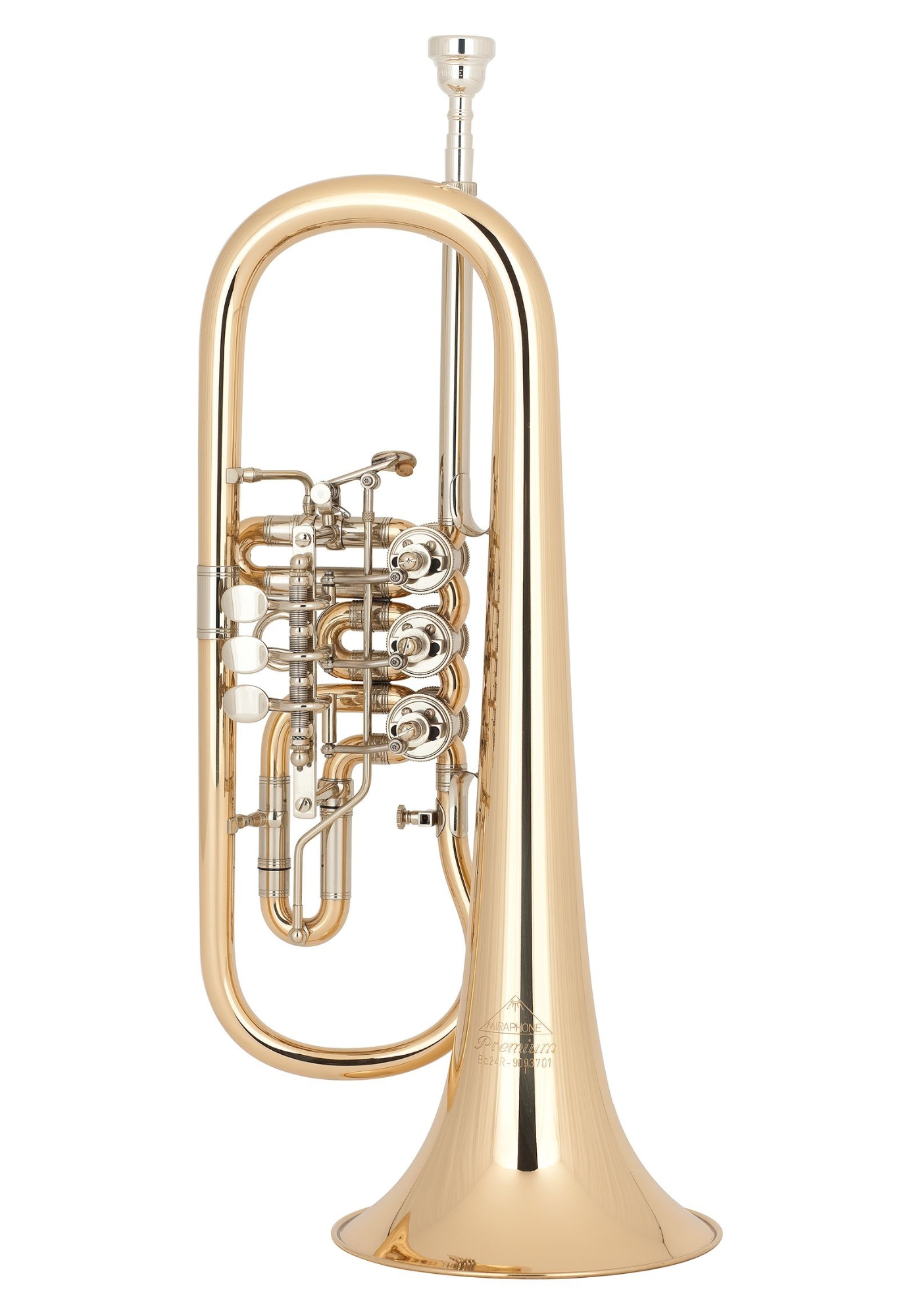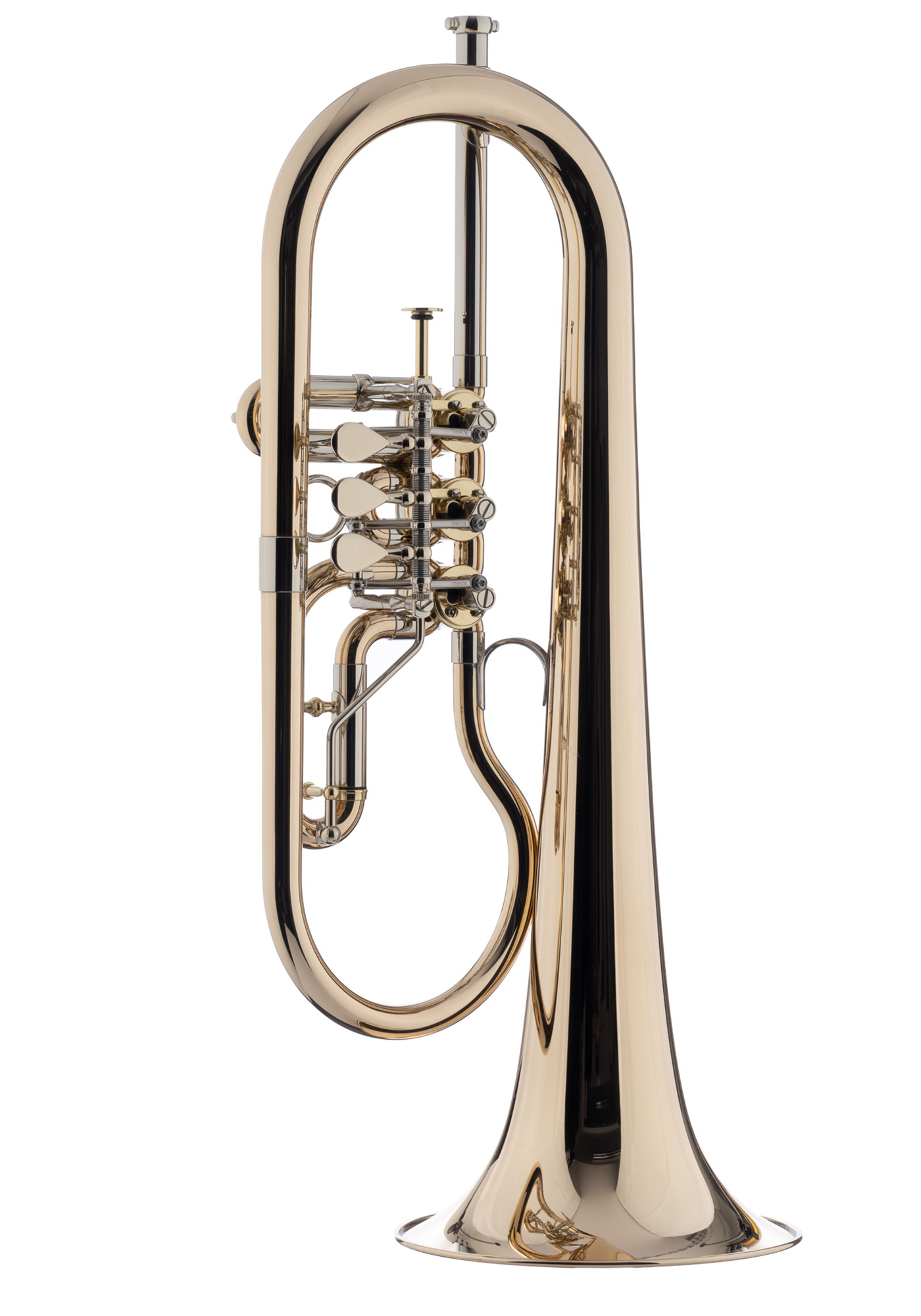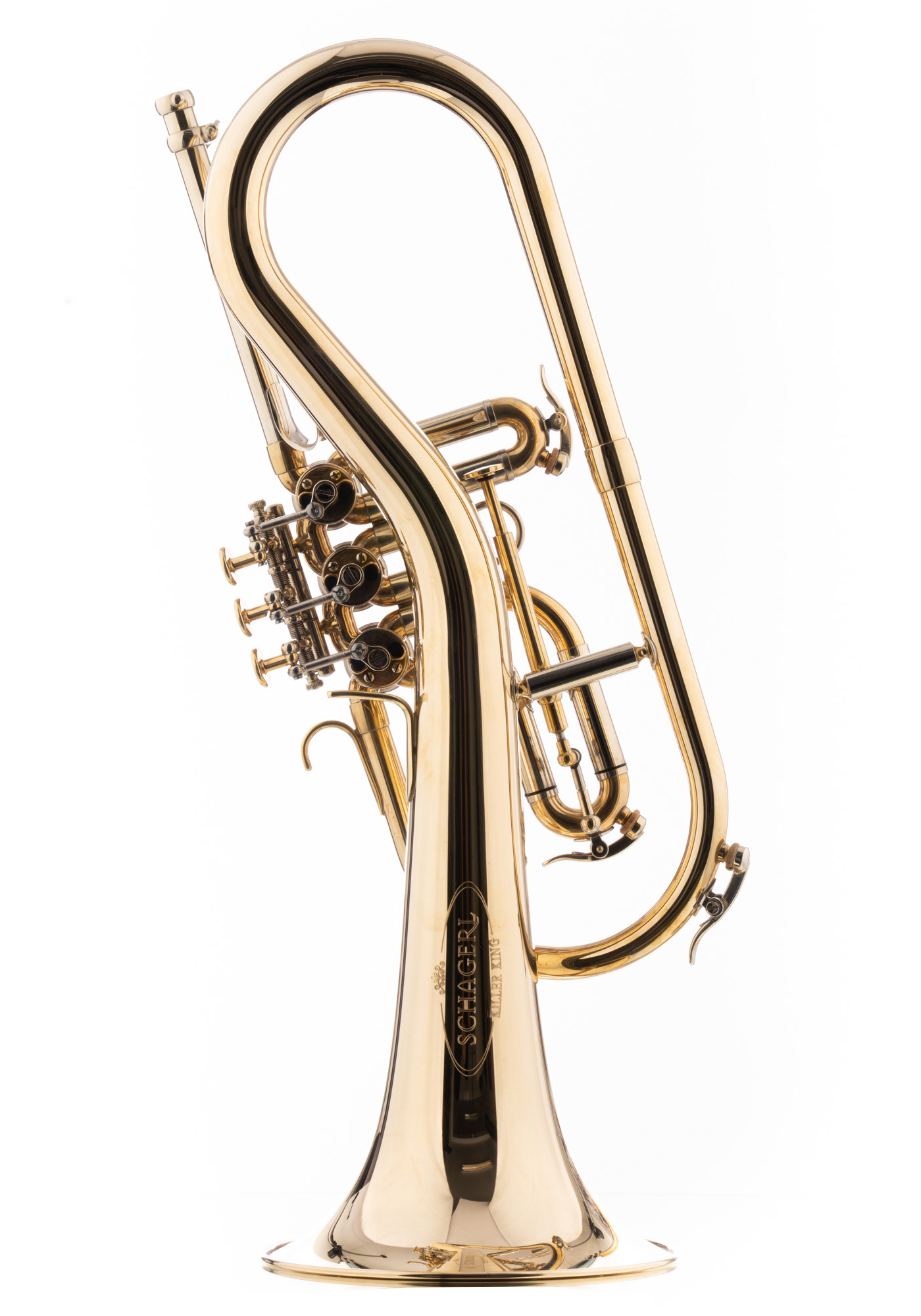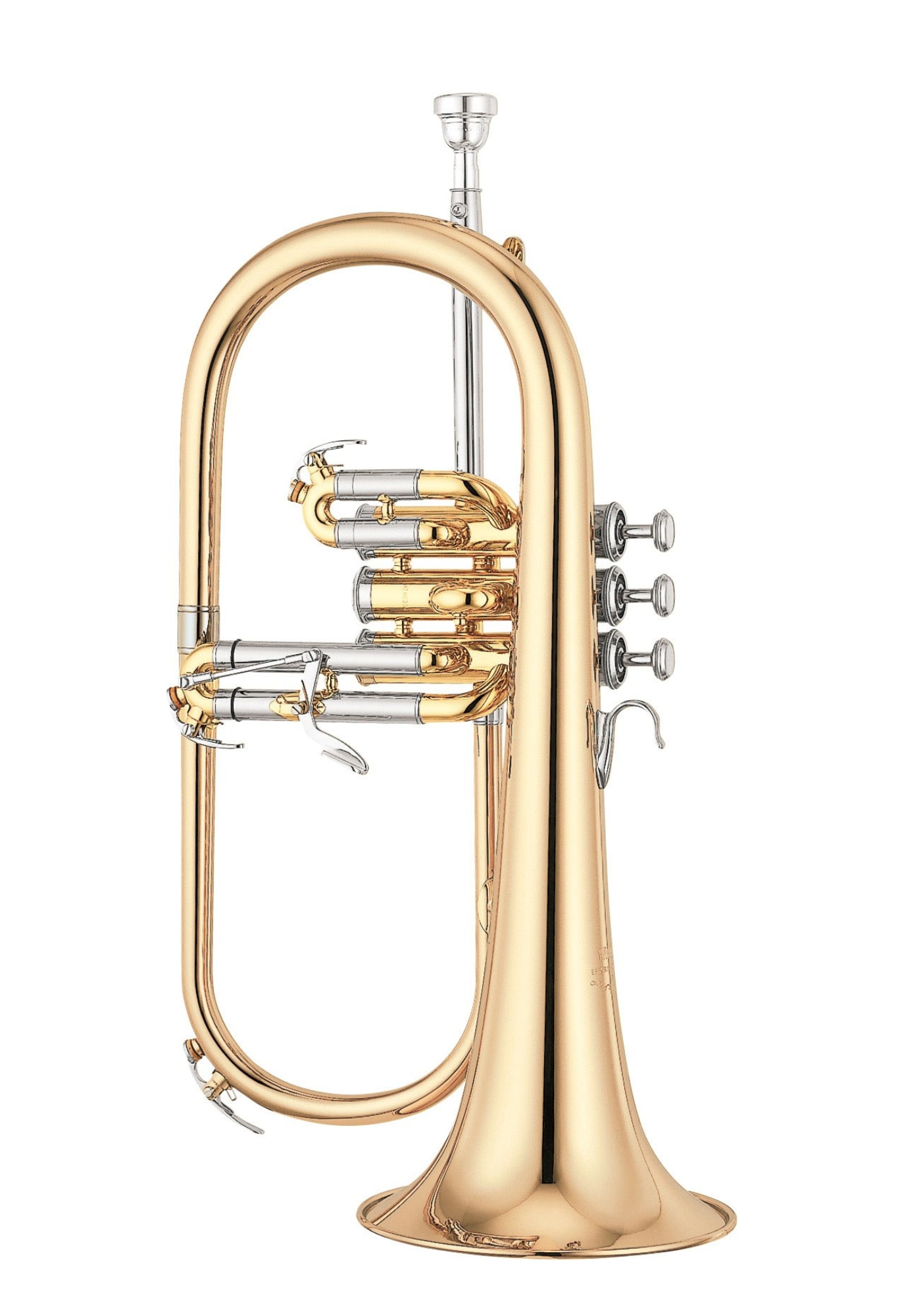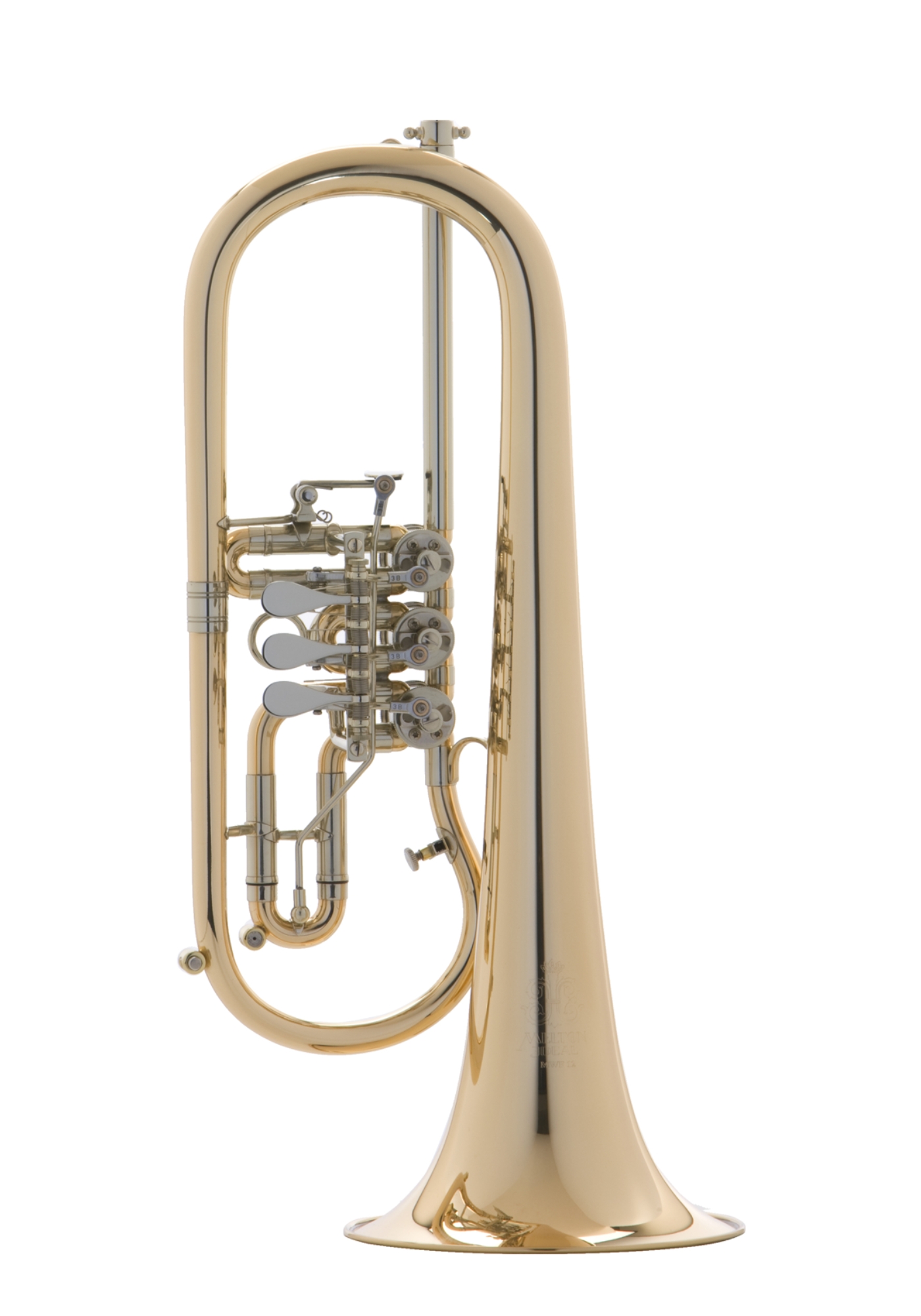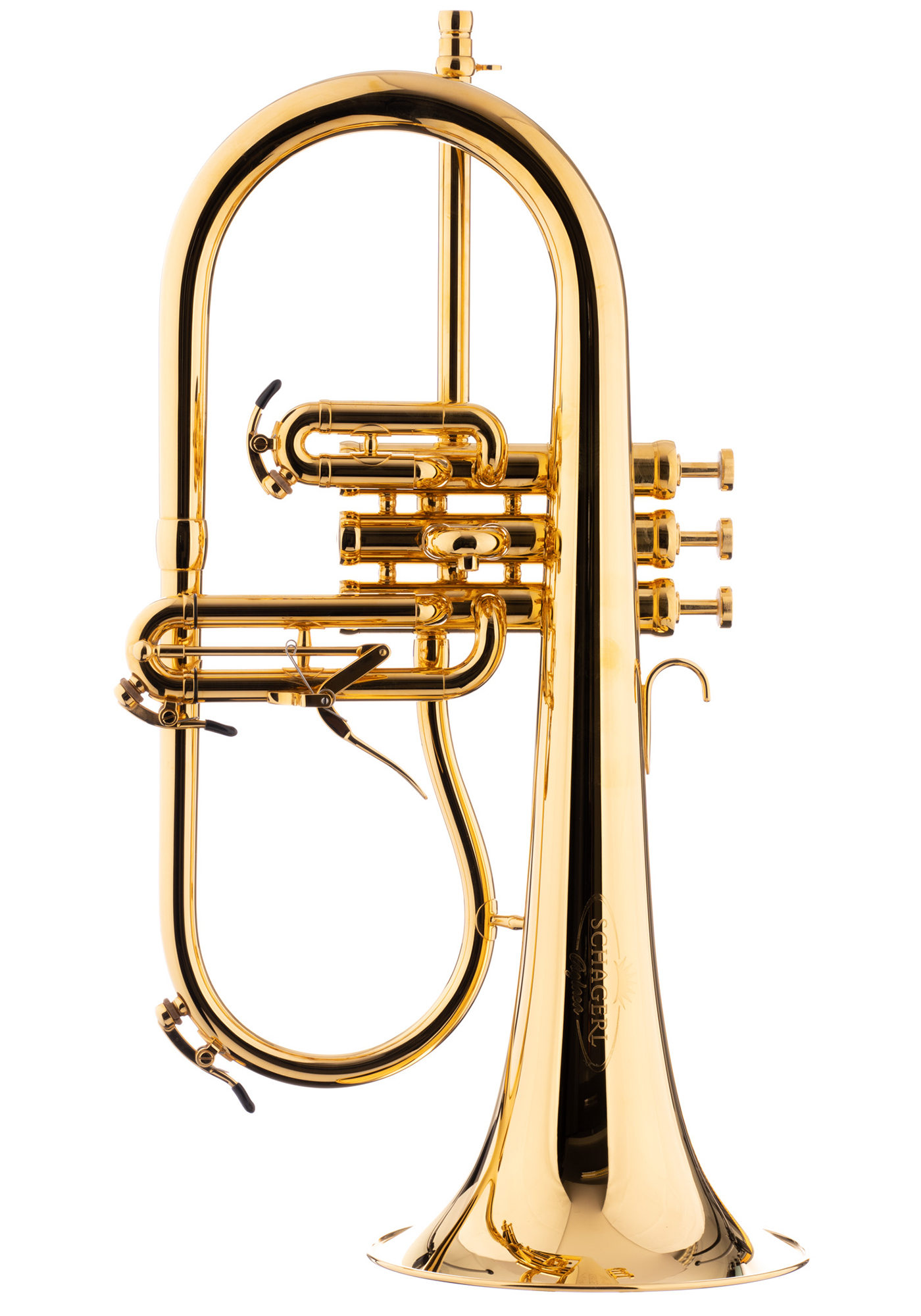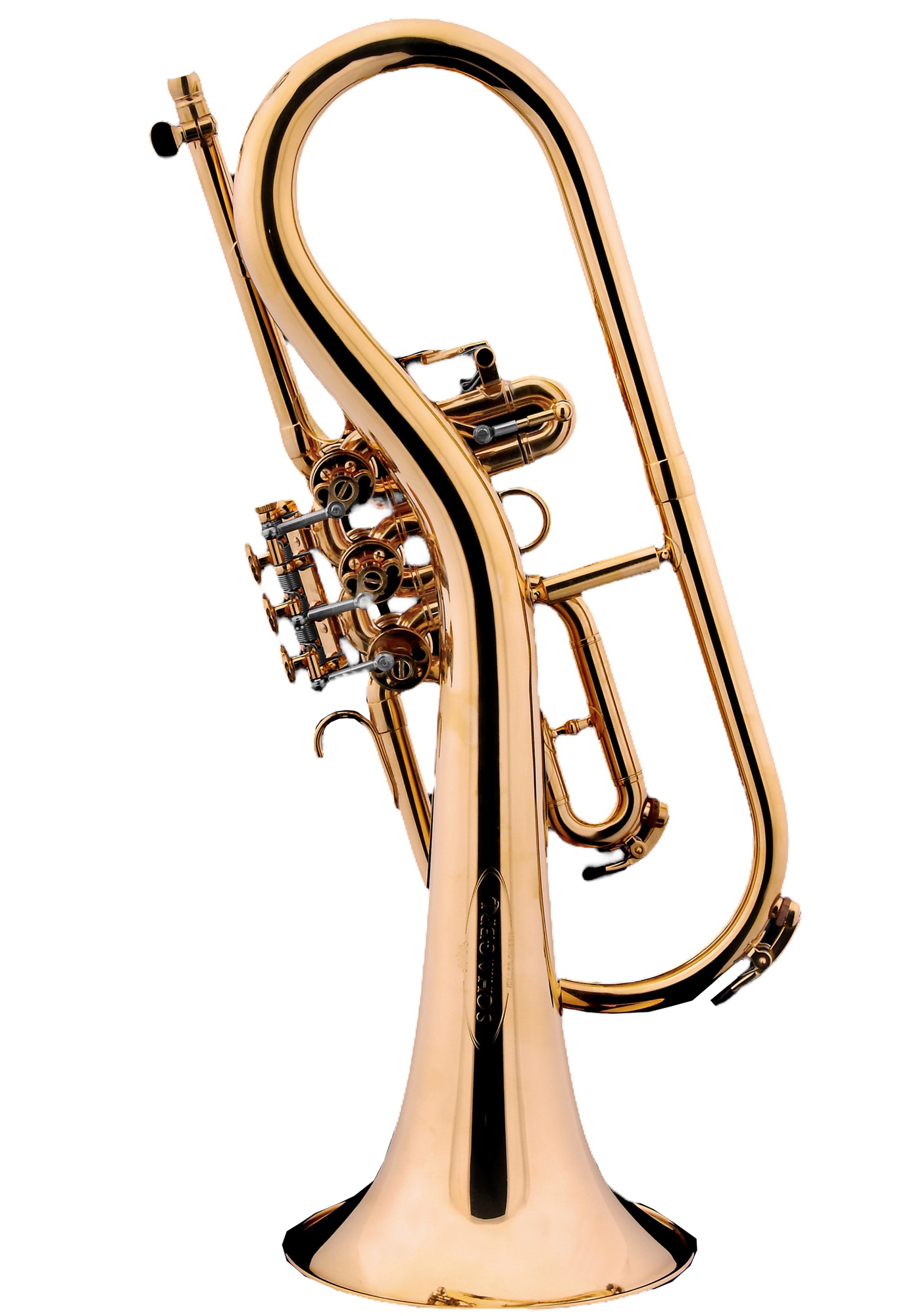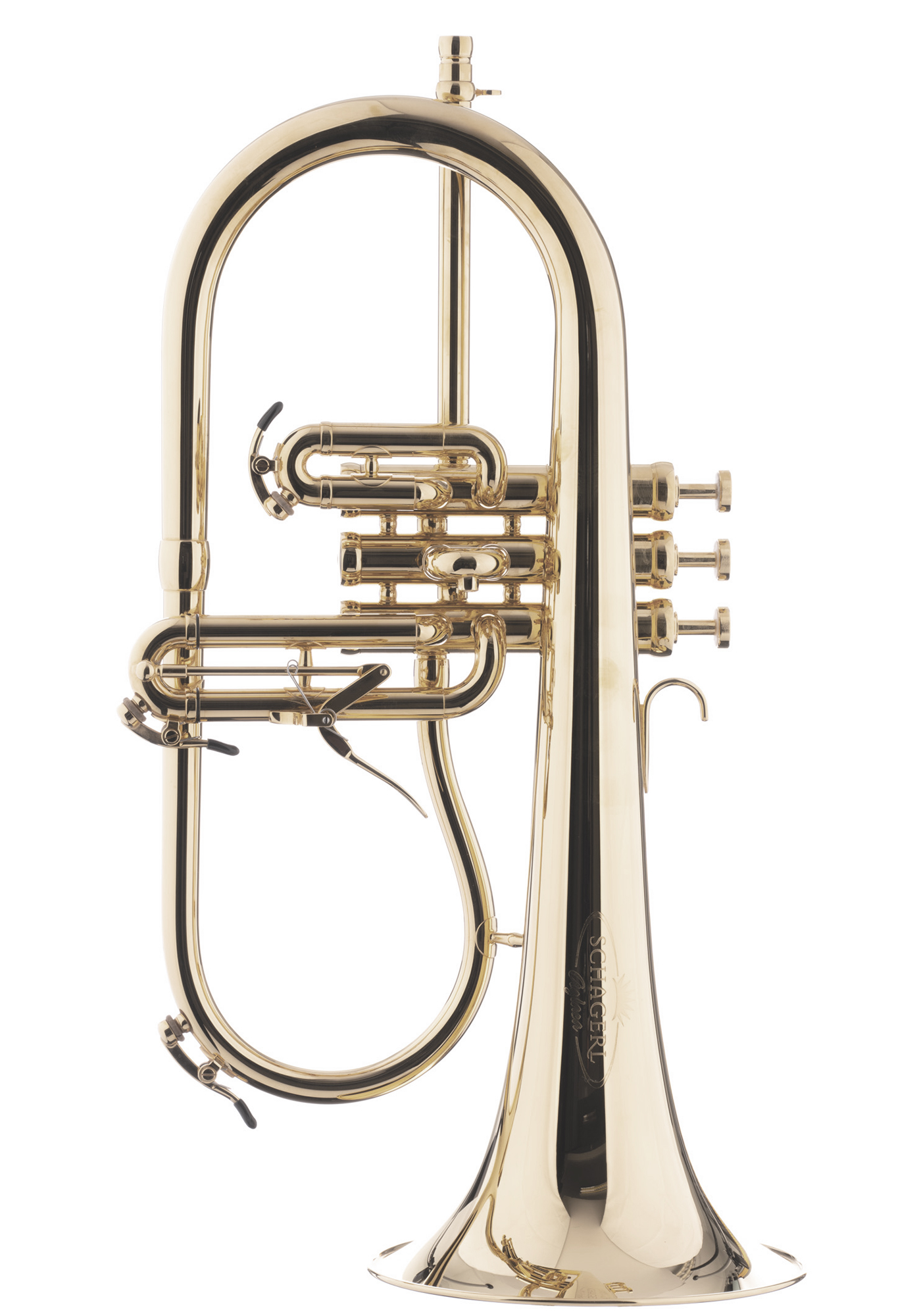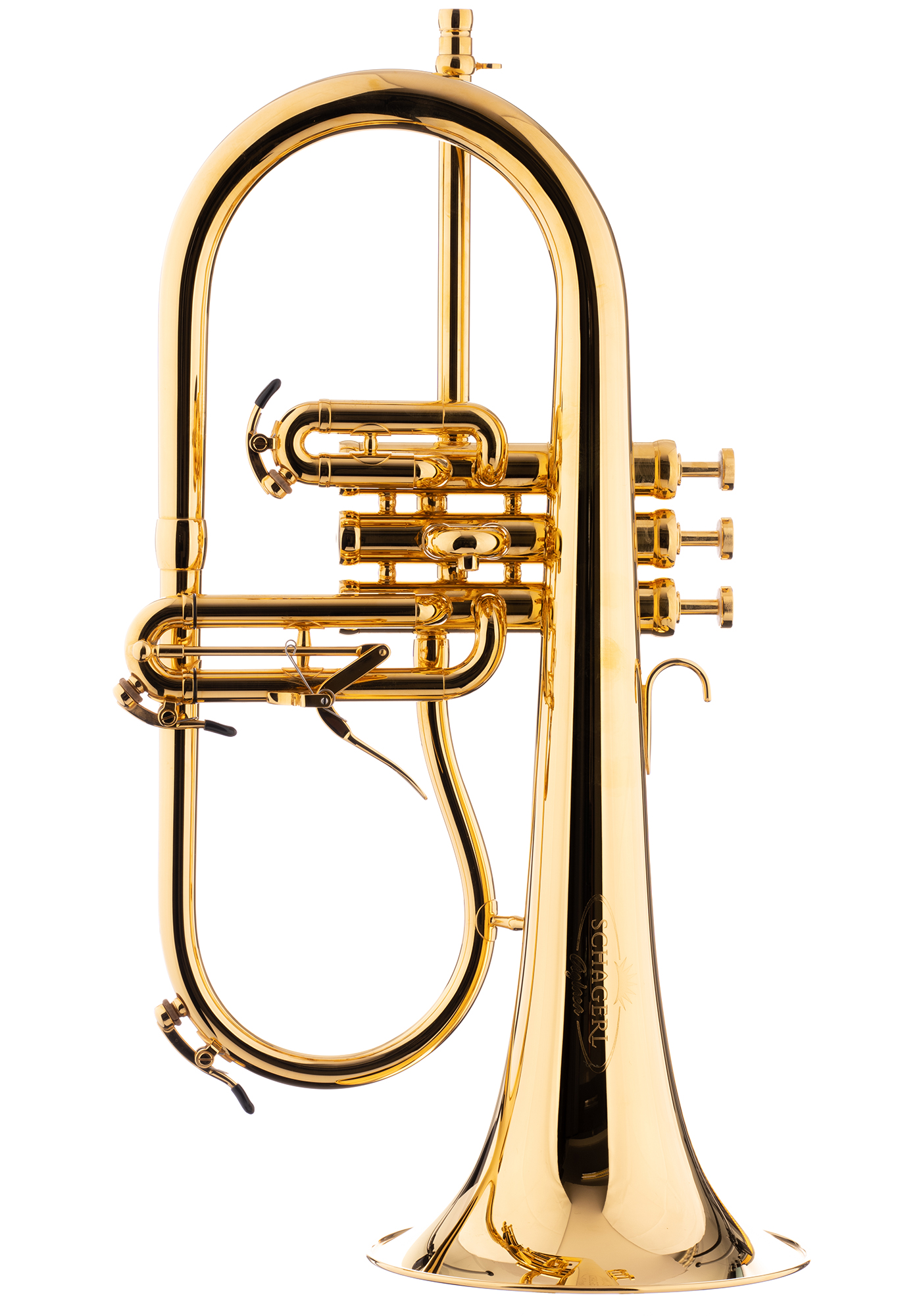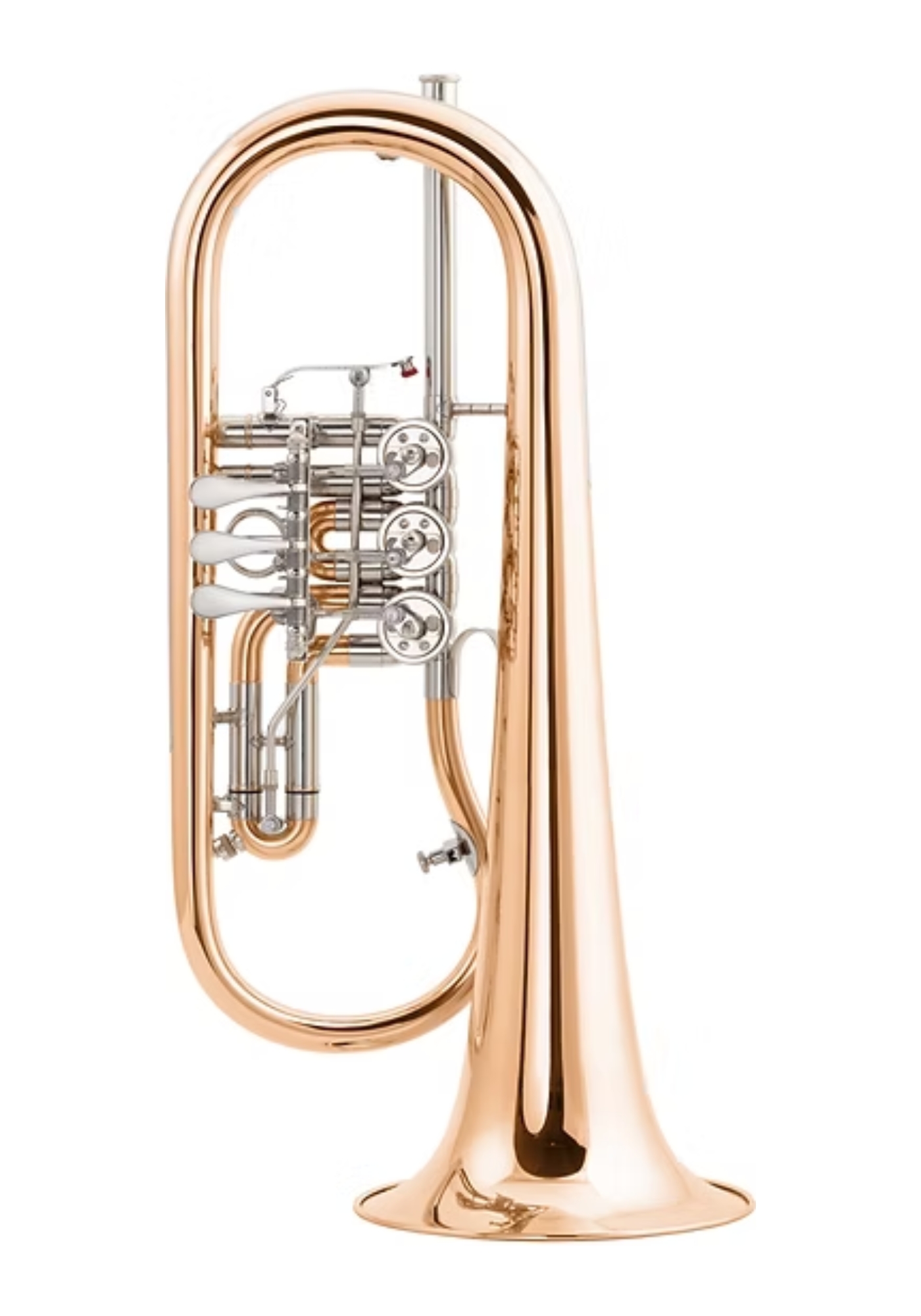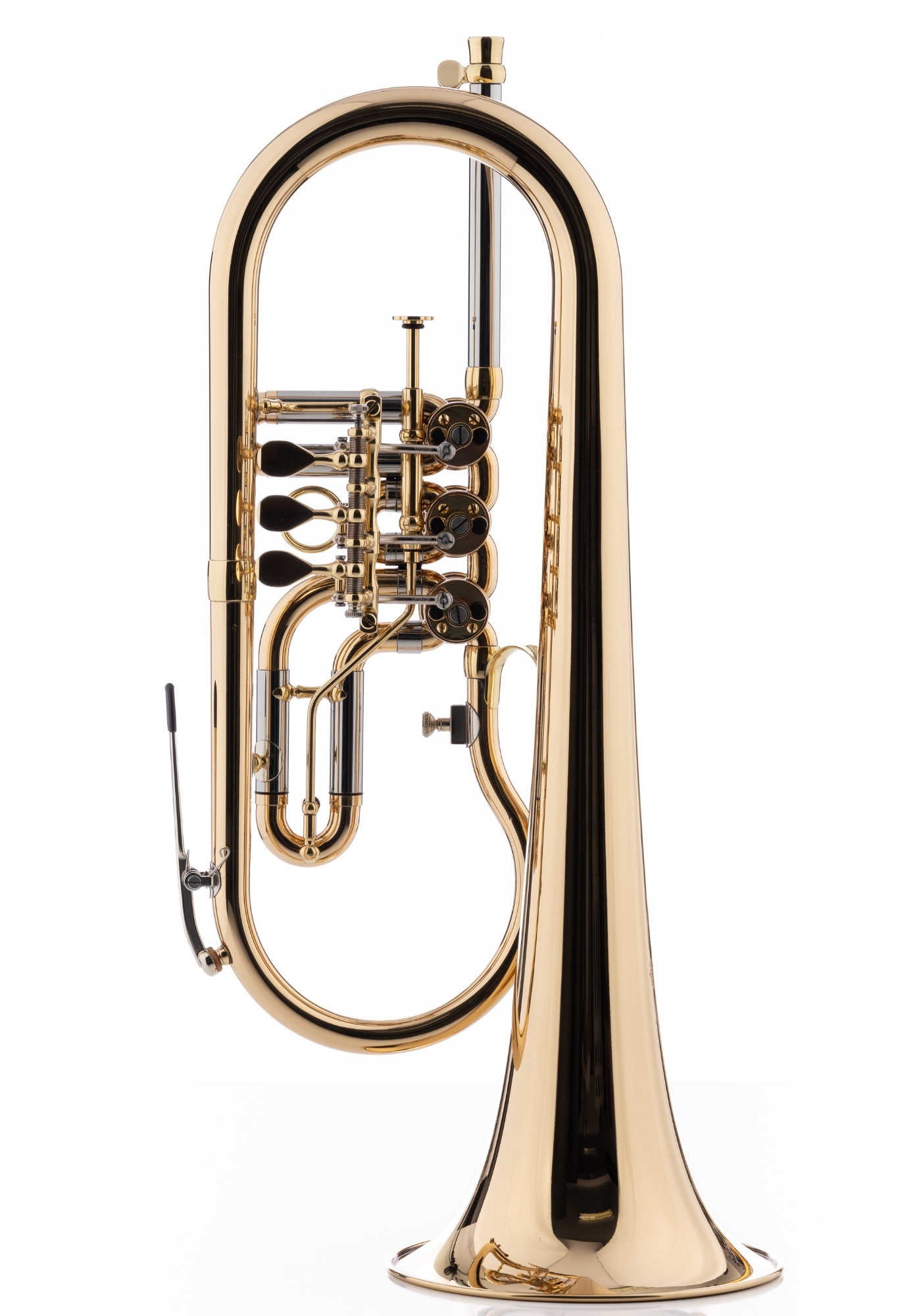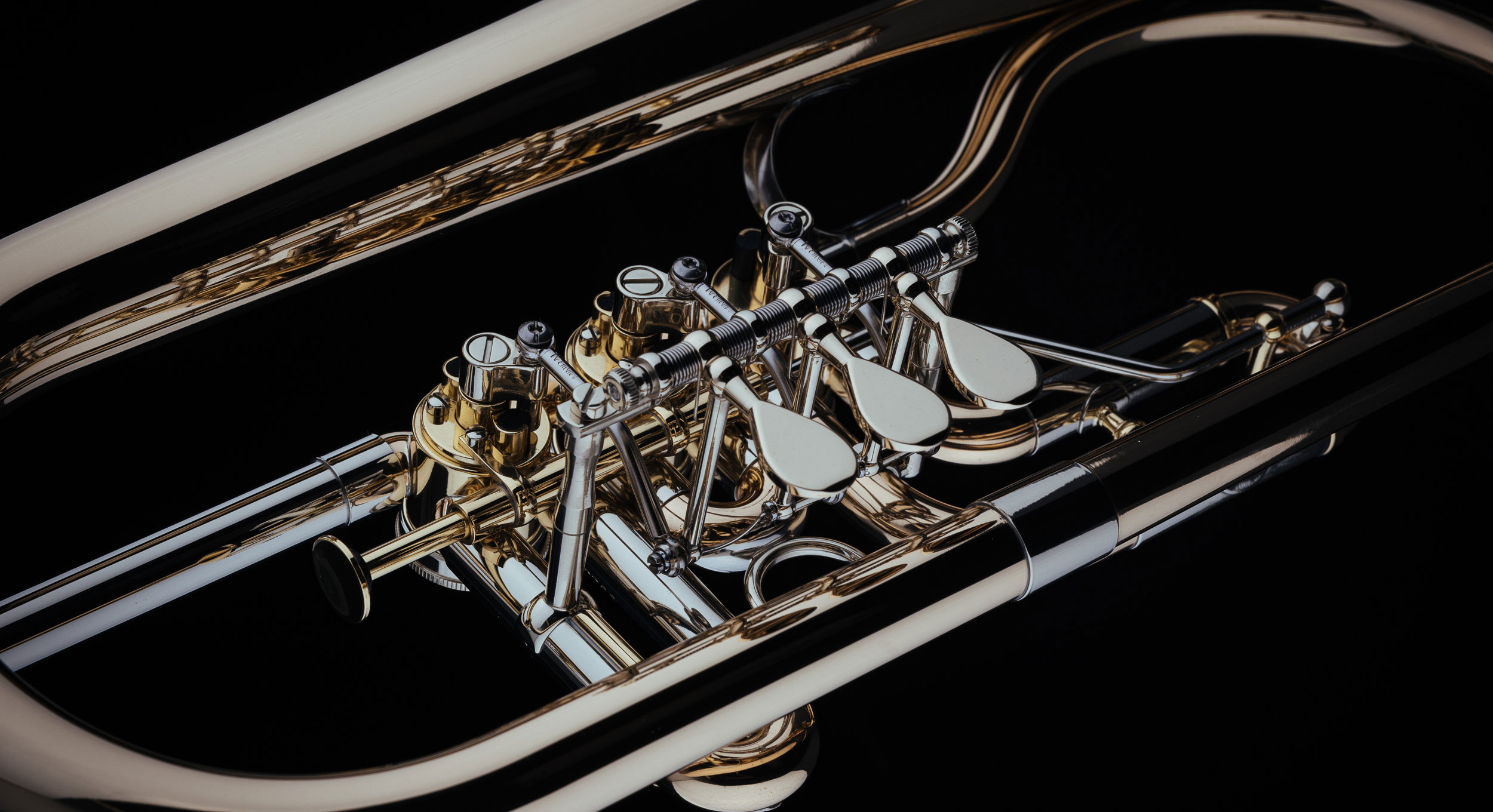
Flugelhorn
in stock
in stock
in stock
delivery time: 10-14 days
Free shipping
delivery time: 2-3 months
delivery time: 10-14 days
Flugelhorns - Soft sound and versatile applications
History of the flugelhorn
Tuning and pitch
Design of the flugelhorn
Care:
1. Cleaning the surface: use a soft, dry, lint-free cloth. Regular cleaning protects the surface from dirt and wear.
2. Humidity control: The breath that flows through the instrument brings moisture with it. After each playing session, it is important to drain the condensed water in the instrument and then air dry the instrument.
3. Thorough rinsing: You should rinse your flugelhorn with lukewarm water about every 8 weeks. This helps to loosen saliva residue and keep the inner pathways clean.
4. Professional internal cleaning: after 3 years at the latest, the inside of your instrument should be chemically cleaned to remove bacteria and calcification.
5. Maintenance of the valves and slides: The valves should be oiled and the slides greased regularly. This daily maintenance ensures that everything runs smoothly.
Bags and Cases:
1. Gig bags: These bags are ideal for musicians who are often on the road. They are lightweight, soft and comfortable to carry like a backpack. Gig bags offer flexibility and comfort, but are less protective than hard cases.2. Hard cases: These offer optimum protection. They are stable and sturdy and protect the instrument from knocks and environmental influences. The disadvantage is the higher weight compared to gig bags.
3. Combination solutions: There are now also combinations of hard case and backpack straps. These offer both the protection of a hard case and the carrying comfort of a gig bag. They are an excellent choice for musicians who do not want to compromise between protection and comfort.
Buy a flugelhorn at Schagerl:
Expert advice: Schagerl employs experienced musicians and specially trained staff who offer professional and individual advice. Whether beginner or professional, every customer receives the support they need to find the perfect instrument.
Best customer service: Customer service at Schagerl stands for reliability and commitment. In addition to personal advice, customers also benefit from services such as repairs, maintenance and the purchase of accessories, which makes the entire purchasing process uncomplicated and pleasant.

